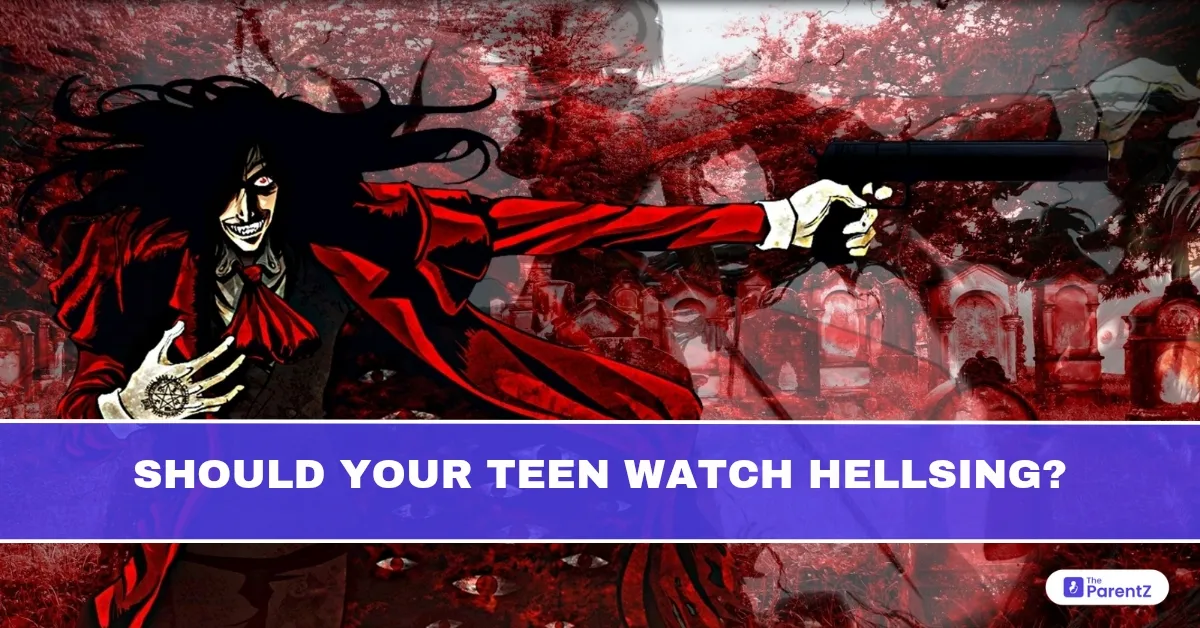Introduction
Hellsing isn’t your typical vampire anime—it’s aggressive, moody, unapologetically violent, and often drenched in theological symbolism and military aesthetics. Whether you’re watching the original 2001 series or the more faithful (and brutal) Hellsing Ultimate, the core remains the same: a world where monsters are used to kill monsters.
For teens drawn to antiheroes, gothic action, and mature themes, Hellsing might seem like an edgy pick. But beneath the blood and bullets, the show poses complex questions about authority, identity, and what happens when your strongest weapon is also your greatest threat.
Overview
The story centers on the Hellsing Organization, a secret British order dedicated to exterminating supernatural threats, particularly vampires. Leading this crusade is Sir Integra Hellsing, a stoic and commanding figure who controls one of the most dangerous beings alive—Alucard, a powerful vampire with godlike abilities and a disturbing thirst for destruction.
Alongside Alucard is Seras Victoria, a former police officer turned fledgling vampire. As she struggles with her new nature, the trio finds themselves battling not only rogue vampires and ghouls, but also fanatical enemies, including a militarized Catholic sect and, later in Hellsing Ultimate, resurrected Nazis from World War II.
The show is a blend of horror, action, and psychological conflict, wrapped in religious undertones and philosophical violence.
Themes
1. Power, Control, and Obedience
Alucard is terrifying not because he’s evil, but because he’s willing. He chooses to obey Integra—but makes it clear he could destroy everything at any moment. Their dynamic explores what it means to control a force of destruction—and how close that control is to complicity.
For teens, it poses interesting questions about authority, loyalty, and restraint. Is Alucard noble for following orders? Or simply a weapon waiting to turn?
2. Violence and Dehumanization
This anime does not pull punches. Heads are exploded. Bodies are torn apart. Blood flows freely. But beyond the spectacle, the violence carries thematic weight. It’s used not just for horror, but to explore how wars—literal and ideological—reduce enemies to targets.
This portrayal can be captivating for teens, but also emotionally numbing without context. It's important they understand why it's being shown—not just what.
3. Identity and Humanity
Seras’ journey as a new vampire is one of the few emotionally grounded arcs in the series. She wrestles with her loss of humanity, her refusal to drink blood, and her place among monsters. Her struggle mirrors that of many teens grappling with change, identity, and the fear of becoming someone unrecognizable.
Age Preference
Recommended for: 17+
Hellsing (especially Hellsing Ultimate) includes graphic violence, mature themes, war trauma, religious conflict, and deeply disturbing imagery. While there’s limited sexual content, the tone is relentlessly adult.
Who Should Not Watch
- Teens under 16
- Viewers sensitive to blood, gore, or militarized religious themes
- Anyone uncomfortable with depictions of war, torture, or moral ambiguity
- Parents looking for redemptive arcs or clearly defined morality
This is not a hopeful show—it’s stylish, cold, and unapologetically brutal.
Lessons From It
If interpreted thoughtfully, Hellsing is a meditation on power. On how violence—no matter how justified—dehumanizes everyone involved. On how control without compassion is just another form of chaos.
It also questions the nature of “good.” The Hellsing Organization kills to protect people, yes—but with increasing detachment. The enemies are often extreme, but so are the heroes. This moral complexity can push teens to think critically about ethics, leadership, and how far is too far.
Conclusion
Hellsing isn’t for every teen. But for the right viewer—someone emotionally mature, philosophically curious, and able to handle intense content—it offers a compelling, if grim, story about monsters in human clothing.
If your teen wants to watch it, don’t just ask, “Is it too violent?” Ask what they think about Alucard’s loyalty. About Seras’ hesitation. About whether violence ever ends, or simply changes hands.
Because Hellsing isn’t just about fighting darkness—it’s about becoming it. And the question it leaves behind is: can you ever come back?





Be the first one to comment on this story.